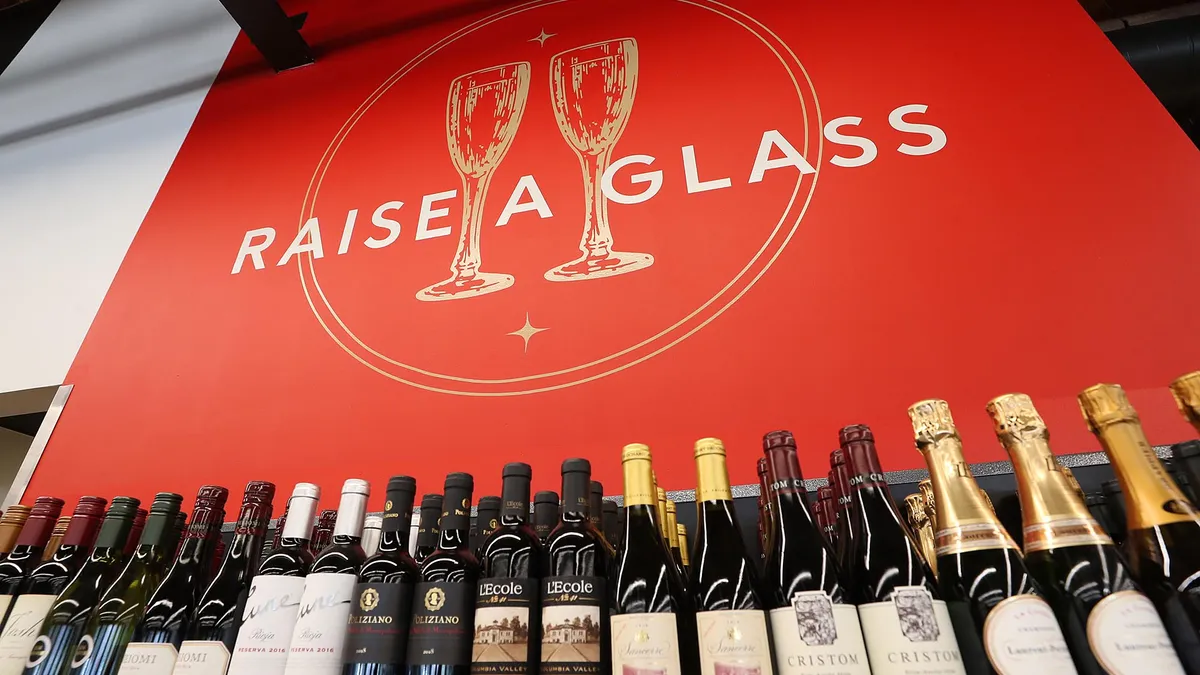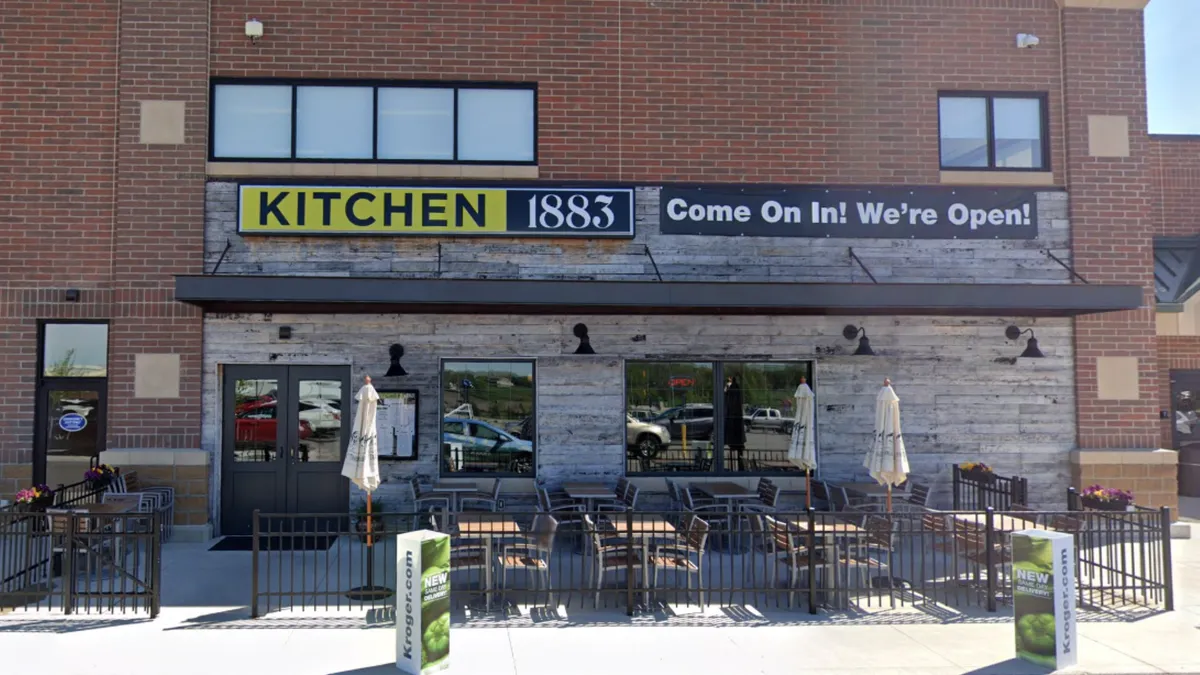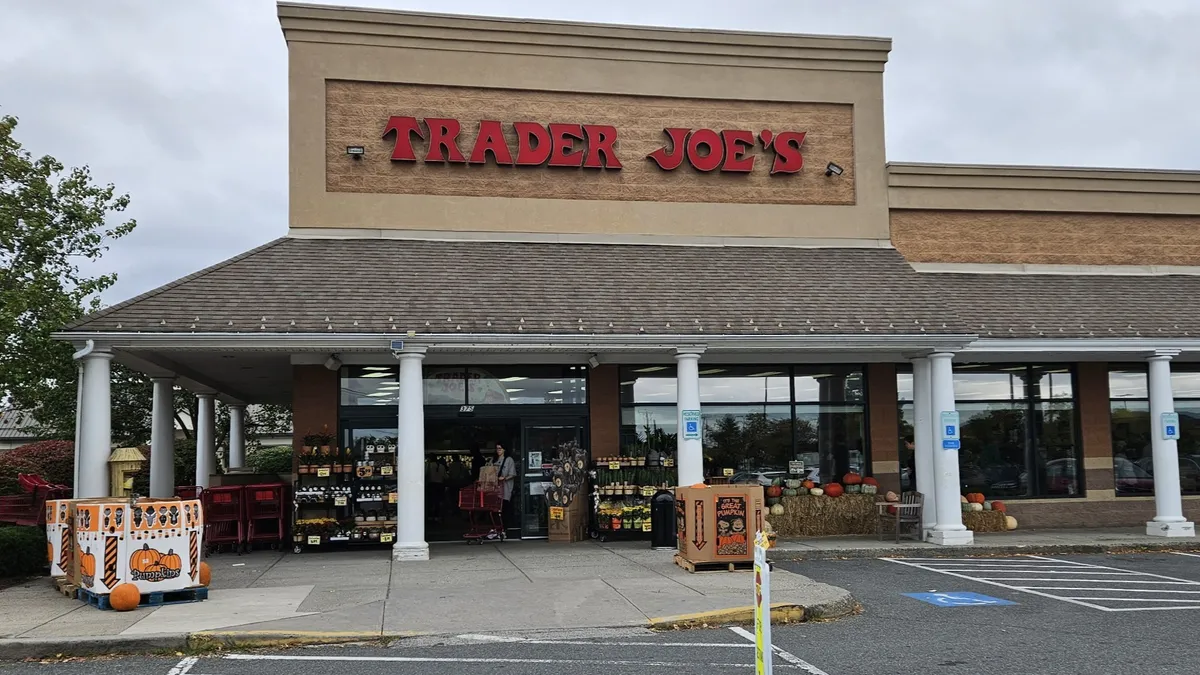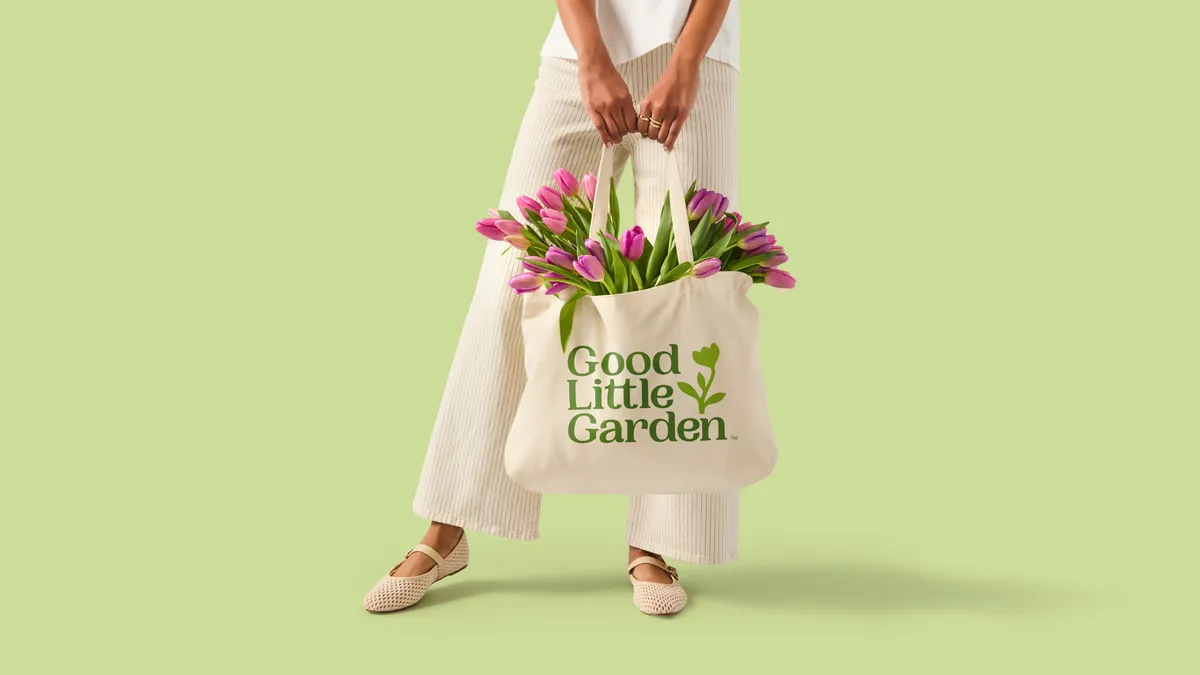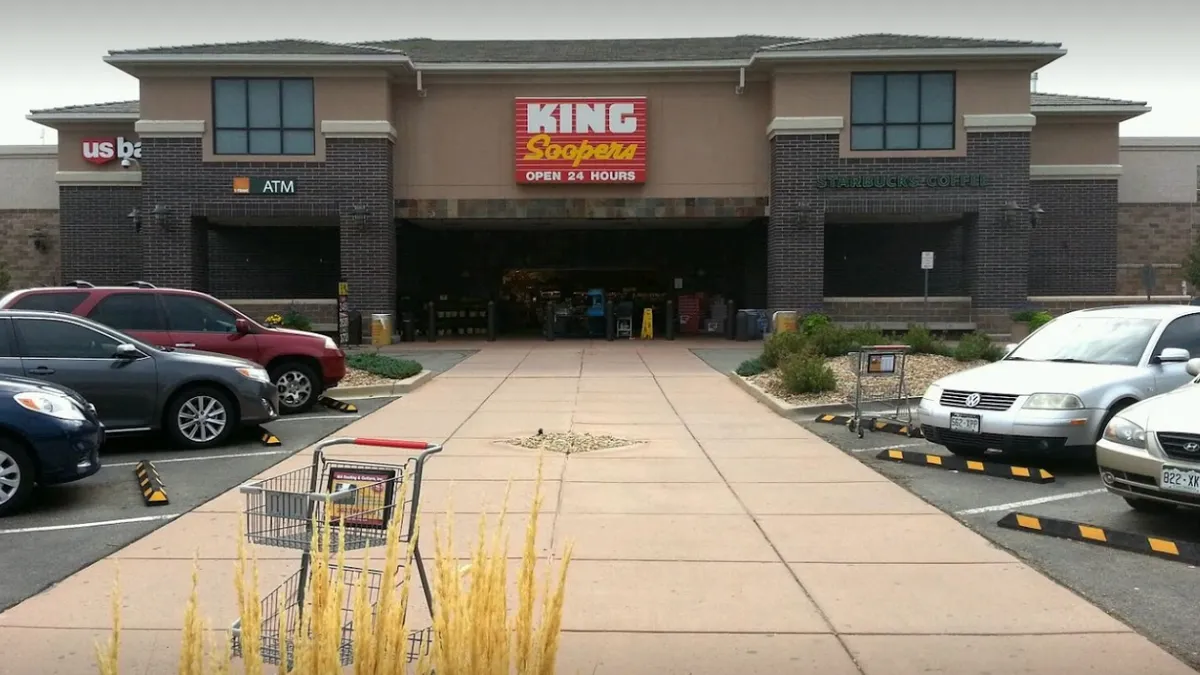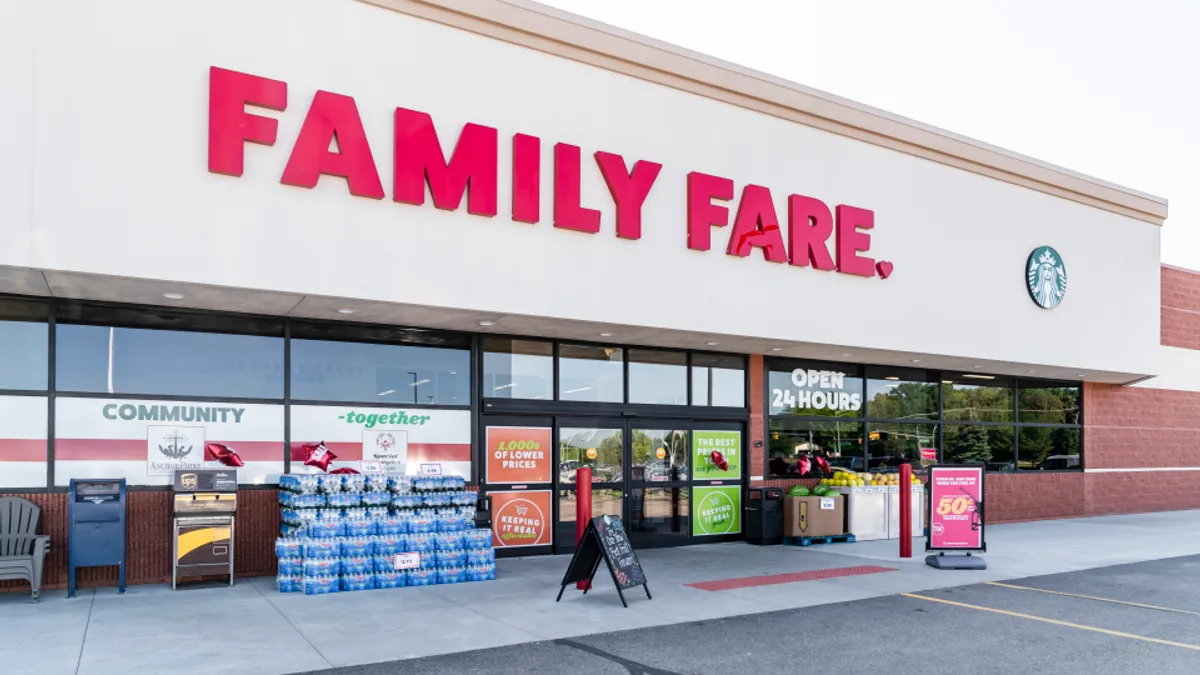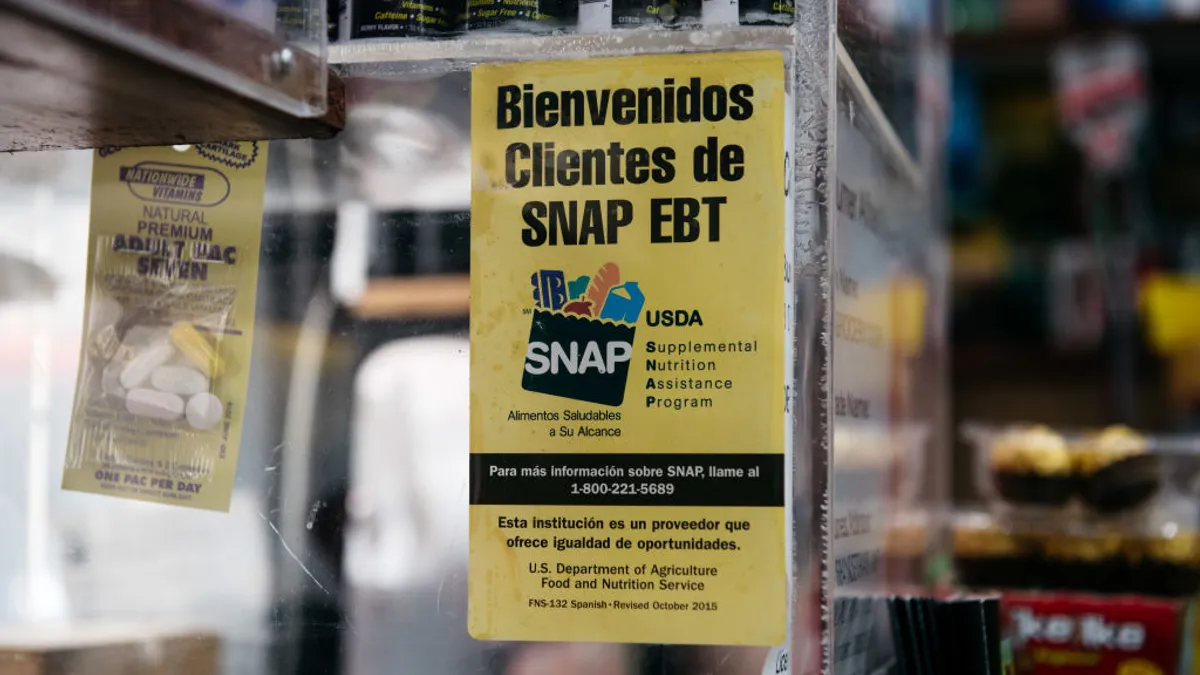A growing number of grocery chains have turned to selling beer, wine and spirits at stand-alone stores in what experts say is largely an attempt to capitalize on increasing demand for alcohol while staying in line with state liquor laws.
Grocers including Hy-Vee, Southeastern Grocers, Food Lion, Fareway and ShopRite have opened stand-alone liquor stores over the past several years. Publix debuted its Publix Liquors shops in 2003 and now operates more than 300 of them.
Grocers typically launch stand-alone liquor stores that act as separate entities due to state laws that separate the sale of alcohol from grocery stores, said Emma Versaw, head of bevalc at retail technology company Swiftly, who stressed the need for chains to do so in a way that protects their brand.
“While grocers would likely prefer all categories to be sold within the core four walls … changing conditions may have made [stand-alone stores] more appealing,” Versaw wrote in an email.
Those changing conditions include the growing popularity of at-home drinking and the desire for one-stop shopping, which have driven the demand for alcohol, said Versaw. And stand-alone stores may actually be more efficient today due to supply chain challenges and the need for specialized handling of alcohol products, she added.
Since 2020, Lowes Foods has opened three Knock Knock Spirits — speakeasy-themed liquor stores — inside their grocery stores in South Carolina, said Kelly Dillon Davis, senior director of guest engagement at Lowes. State laws influence where the chain is allowed to sell spirits, she said. The chain sells beer and wine at its stores in neighboring North Carolina, but in that state, all spirit stores, which sell liquor, are operated by the state, Davis said.
Several grocers, including Lowes Foods and Hy-Vee, declined to answer questions about their motivations for turning to such formats and the impact those stores have had on their brand and sales.
Stand-alone alcohol stores are just one of many store formats — from supermarkets to convenience stores — grocers can deploy. Oftentimes, grocers will operate a number of different formats within the same market, said Bourcard Nesin, a beverage analyst at Rabobank. Those different formats allow them to “grow their business and better serve their customers,” he said.
“It wouldn’t be at all surprising to see some operators explore a stand-alone liquor store as a growth opportunity rather than as a requirement to comply with regulations,” said Nesin.
State alcohol laws hamper grocers
When a supermarket launches a stand-alone liquor store or a connected liquor store, it’s almost always driven by regulation, said Nesin.
“Supermarkets would always prefer to sell wine, beer and spirits within their own premises,” said Nesin. “The whole concept of the supermarket is a one-stop-shop, but many states have laws that limit where and how liquor can be sold.
Some states, such as New York, New Jersey, and Massachusetts severely limit the number of liquor licenses a single company can have — which effectively bans the majority of grocery store chains from selling liquor, said Nesin.
There has been a recent movement in some states to allow grocery stores to sell alcohol. In 2016, Tennessee and Pennsylvania, for example, allowed grocery stores to sell wine, with the former also allowed to sell beer. In 2019, Colorado allowed grocery stores to sell full-strength beer for the first time — followed by wine in 2023. And a number of states over the years have removed bans on Sunday alcohol sales, Nesin said.
But in several states, the stand-alone store workaround allows grocery chains to capture business that would instead go to a liquor store, said Nesin.
Minnesota laws do not allow grocery stores to sell full-strength beer, wine or spirits. However, grocery chains in the state are allowed to open a separate liquor store, said Nesin. Publix runs the vast majority of its branded liquor stores in Florida, a state that has similar restrictions, he said.
State laws are not always the motivating factor for grocers’ stand-alone stores.
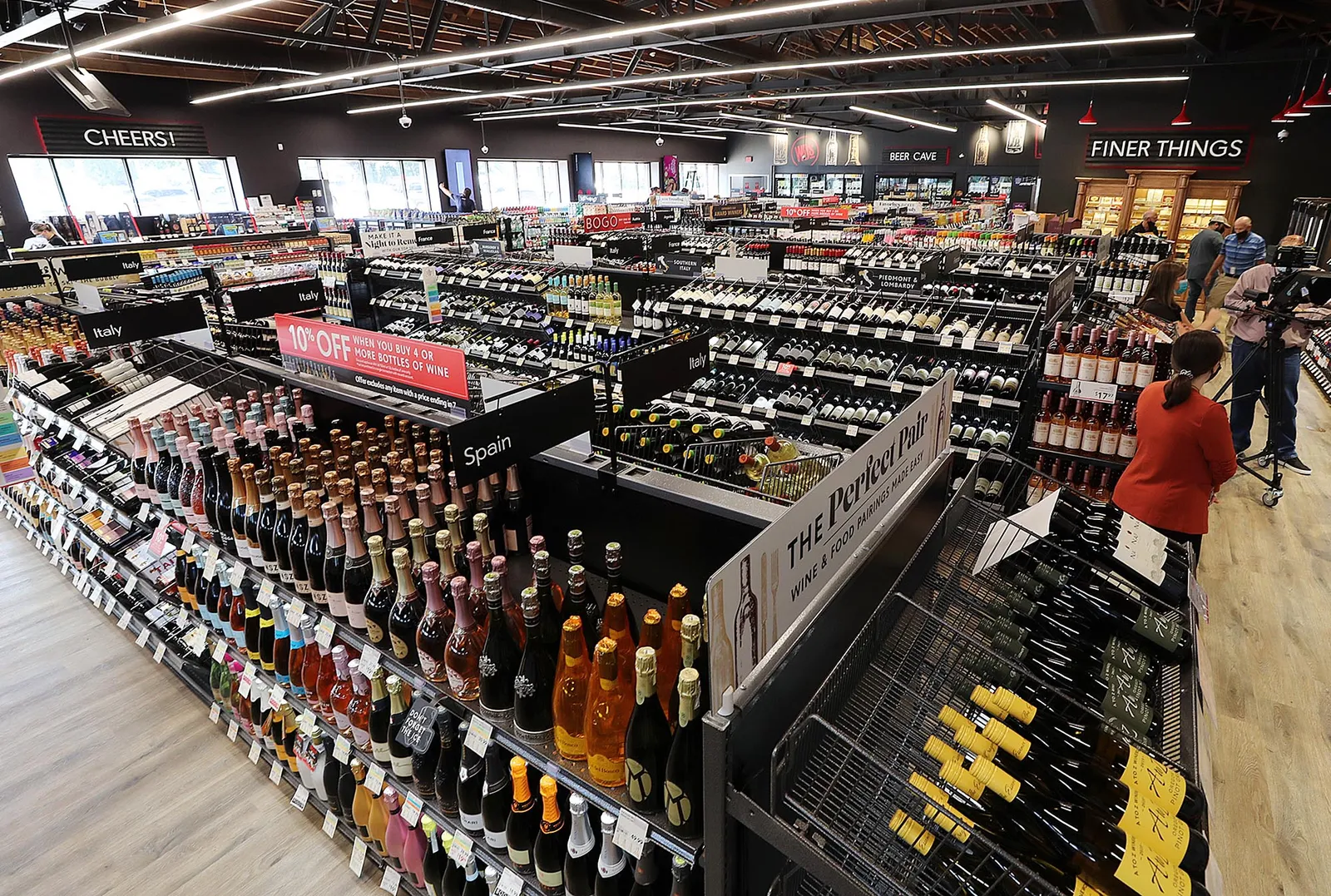
Hy-Vee introduced its first stand-alone liquor store format, Wall to Wall Wine and Spirits, in West Des Moines, Iowa in 2021, and has since opened additional locations in Nebraska, said Tina Potthoff, a spokesperson for the grocer.
Grocery stores in Iowa and Nebraska are allowed to sell beer, wine and liquor, according to USA Today. Meanwhile, Hy-Vee’s grocery stores in both of those states sell beer, wine and liquor.
Protecting the brand
Locating a liquor store in the same shopping center as the grocery store can provide more convenience for customers and increase foot traffic, said Versaw.
But grocers that launch adjacent stand-alone liquor stores need to ensure that they maintain a consistent brand identity across formats to help reinforce customer loyalty and recognition, she said.
Protecting that brand means carrying products that align with the grocery store’s image and target customer demographic as well as integrating the liquor store into the existing loyalty program to offer customers additional benefits and incentives, she said.
That also includes offering “high-quality customer service in both locations to maintain a positive reputation,” said Versaw.
Whether grocers choose to do stand-alone stores or focus on selling alcohol within their traditional stores, the alcohol business can be lucrative. Alcohol has been one of the fastest-growing categories in grocery over the past decade and selling alcohol is “highly profitable,” said Nesin.
The amount of money made per unit sold is very high, he said. And while few items cost $10 or more in a grocery store, the majority of items in the wine, beer and spirits aisle do, he said.
“Being able to attract high-spending consumers to a store is a major driver of the focus on the category,” said Nesin. “Grocers don’t want to leave money on the table.


